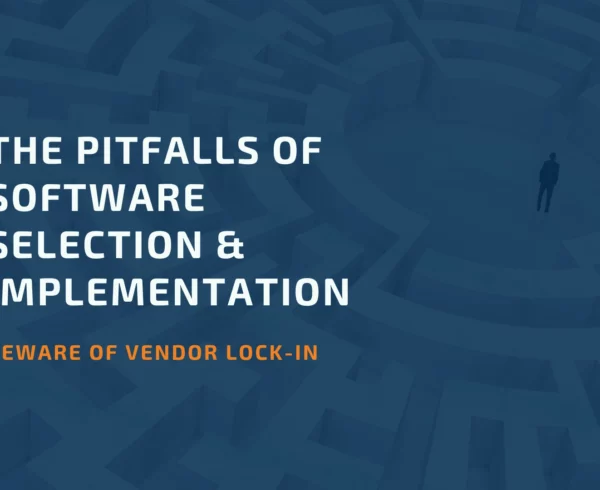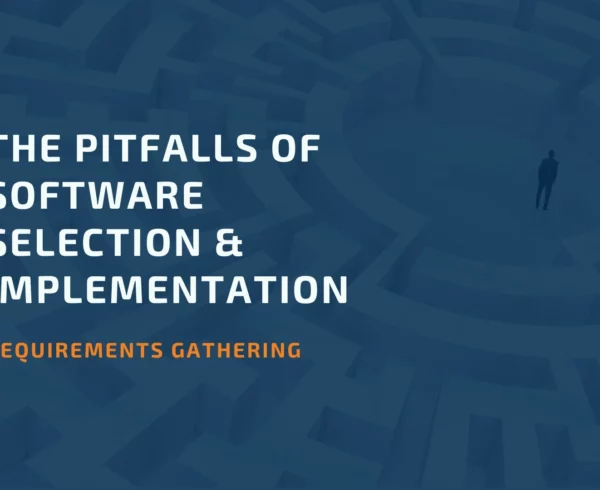When looking to implement an Enterprise Resource Planning (ERP) System, one of the critical questions that come to mind is the implementation’s time. An ERP implementation is a significant project requiring organizations to invest substantial time and resources to create a tangible return on investment (ROI) for the new software. The question of how long an implementation process takes relies on the variables depending on each project. No standard template will magically fit all projects, as every business is unique. Even in the same industrial segment, no two companies are alike. Each has a different scope, team, and availability. However, the core phases and tasks from purchasing your new solution to going live are typically the same for all small to medium-sized ERP implementations.
Most organizations take more time than anticipated to implement their ERP systems. The result is substantial budget overruns, which is something no organization wants. Nobody wants to invest in an ERP only to see it fail. Most companies struggle with setting the correct ERP implementation timeline. Fifty-seven percent of organizations take longer than expected to implement their ERP systems – mainly due to their unrealistic expectations at the start.
Here are a few tips to help you schedule and execute a reasonable implementation period during your planning process:

Benchmark to Other Organizations
Most enterprise software initiatives will take, on average, 21 months from start to finish. Conversely, many ERP vendors may tell you that they can deploy their system in just a few months. However, be aware that their assumptions may not be realistic, and their “perfect world” implementation procedure may not apply to your organization. Therefore, it is essential to benchmark how much time other companies like yours invest in their initiatives.
Set Realistic Expectations
Sales hype can unfortunately also lead to unrealistic expectations. For example, sales reps may suggest SaaS implementation accelerators with pre-configured best practices and other tools intended to form the perception of potentially fast implementations. However, it’s crucial to take these sales messages with a pinch of salt. Every project needs to invest time in changing business processes and people, which is the most time-consuming aspect of large-scale enterprise transformations.
Refine Business Processes
ERP vendors often discourage you from worrying about your business processes as they believe that implementing their software will solve all your problems. However, because ERP systems are built to cater to the complete spectrum of organizations, you should understand that it may require significant effort to refine business processes unique to your business. Therefore, putting in the effort to re-engineer your business processes before implementing the software will reduce the extensive customization required, ultimately minimizing time, reducing costs, and maximizing business benefits.

Develop a Comprehensive Implementation Plan
Selecting a vendor is the first step of your implementation project. Choosing a dedicated project team and a responsible project manager (team leader) would be best. Your team should consist of active experts who can help align the implementation with your business process. The priorities of your project manager are to make sure that the project stays on time and budget whilst ensuring the team carries out all daily activities. At the same time, you must clearly define your vendor’s role regarding the amount of support you will need. Finally, you should include all key activities such as data conversion, training requirements, or even process issues. It would be best to involve all your ERP stakeholders to ensure that your implementation plan consists of the essential tasks for a successful ERP implementation.
Adopt a Strong Governance Model
ERP implementations often overrun the timeline without a robust governance model. Having well-defined controls in place will ensure that customization requirements, scope expansions, and other typical risks don’t cause your project to derail. In addition, by having clearly defined processes in place, your project team will be able to debate any decisions that could interfere with the estimated schedule.
Communicate
Communication between the different ERP implementation teams is critical when determining a realistic timeline estimate. Therefore, you should integrate constructive communication plans into all implementation project phases. For example, to minimize the chances of the project derailing, you should have weekly status meetings with the project committee and the implementation team. Also, we recommend that you have routine conversations with your Vendor to help you determine the priority of your goals, which may change the scope and timeline of the implementation.

The Importance of Deliverables
The implementation team is mainly responsible for precisely scheduling the project. By understanding the project’s priorities and aligning the deliverables around them, you will have a realistic expectation regarding what is involved in completing the project and meeting its intentional goals.

Prepare for Timeline Disruptions
Be aware that you should always be prepared for timeline disruptions no matter how well you plan your implementation strategy. Let’s face it, most organizations are not ERP experts, so there is a strong possibility of you not anticipating or identifying factors that can contribute to longer-than-expected commitments. However, being aware of this issue enables you to factor in processes that may take longer than expected, like change management and customizations. You will then be able to avoid unrealistic expectations and assumptions by being prepared for a worst-case scenario. Building “Slack” between key deliverables ensures your overruns in one section don’t negatively affect your timeline.
Summary
ERP implementation is taxing, and errors can be costly. Get the most out of your implementation by investing in consulting services from the BHC Group. We will help guide you to ensure that you are on the correct timeline and avoid implementation mistakes.
At BHC Group, we can provide you with the best resources to help you stay on track with your project by rounding out your project team, filling in gaps, bringing our expertise and experience to the table, be the “go-between” with your implementation Vendor and take on tasks which free your team up to focus on what they do best. We can be your one-stop-shop for all your resourcing needs.





